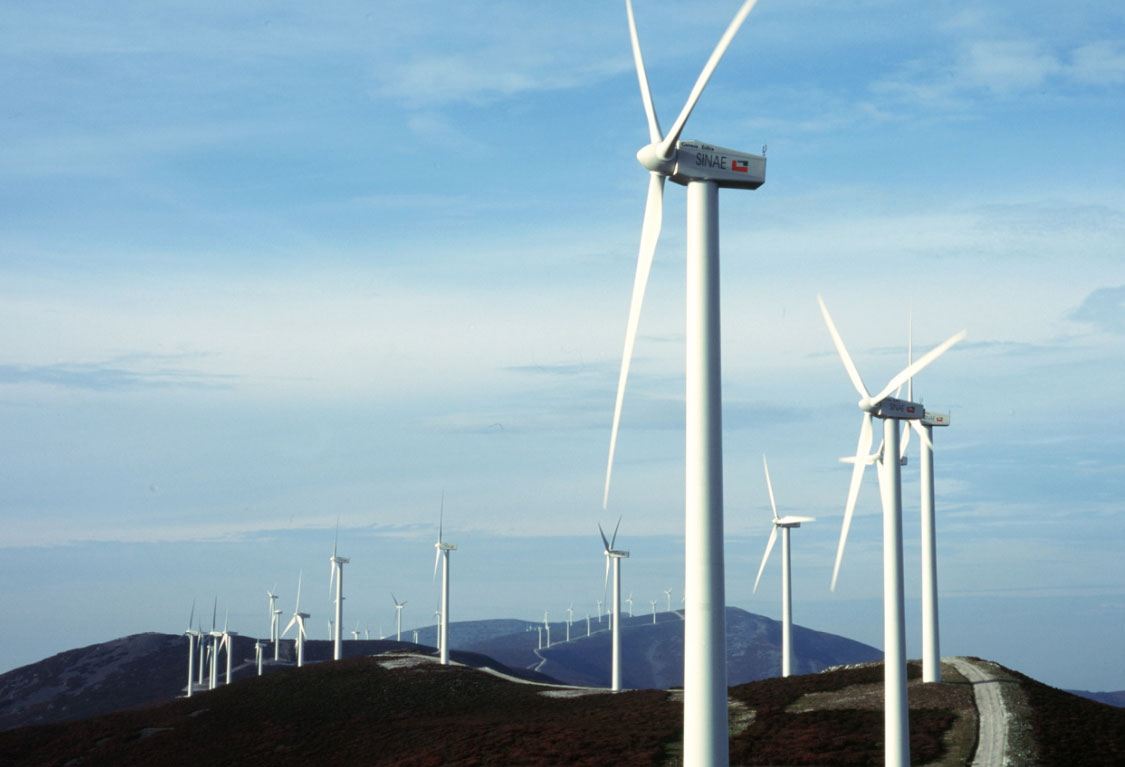3 European power utilities driving the energy transition
We Mean Business coalition
The European energy sector is undergoing a radical transformation, rapidly replacing legacy coal plants with increasing renewable power. 2017 marked a new high for Europe’s renewable electricity generation at 30%, according to a new report.
Many leading power companies are driving this shift to a low-carbon energy system in Europe, while harnessing the benefits of innovation, competitiveness, risk management and growth. We spoke to three companies – Iberdrola, EDP and Enel – about how they are future-proofing their businesses.
Iberdrola on bold climate strategy
Spain’s largest energy group, Iberdrola, is turning the problem of climate change into an opportunity, Carlos Sallé, Director of Energy Policies and Climate Change at Iberdrola, told We Mean Business.
“The first thing is to innovate and to invest. At this moment, we are one of the main investors in low-emission technologies. We are the world leaders in the production of wind energy. We also have a lot of investment in smart grids, which are needed for the integration of renewables in the network,” Sallé said.
The second action Iberdrola is taking is to retire fossil fuel plants. This is advancing the company’s clean energy plan and helping to achieve its target of reducing its CO2 emissions intensity by 50% in 2030, from 2007 levels.
“We have recently announced the retirement of the last two coal plants in Spain (874 MW). So we think that this is a good deal for climate and also it’s a good deal for our shareholders,” Sallé said.
Thirdly, Iberdrola is working to create awareness around the fight against climate change, to further encourage companies, citizens and policy makers to take bold action, he added. This includes developing materials, such as podcasts and documentaries.
Iberdrola has committed to set a science-based target, to implement the recommendations of the Task Force on Climate-related Financial Disclosures, to responsible corporate engagement in climate policy. Iberdrola is also a member of the Low Carbon Technology Partnerships initiative (LCPTi) and the Powering Past Coal Alliance.
EDP on investing for innovation
EDP has totally aligned its corporate strategy with the global effort to tackle climate change, Madalena Callé Lucas, Sustainability, Energy and Climate Change at EDP, said.
“For the last decade we have invested mainly in renewables, efficiency and innovation… That has kept us competitive and at the same time one of the most sustainable companies,” she said.
EDP aims to reduce its CO2 specific emissions 75% by 2030 and to have exceeded 75% of its portfolio from renewables by 2020, as part of its science-based target, which has been approved by the Science Based Targets initiative. In terms of energy efficiency, EDP has set a target to provide its customers with products and services that enable them to achieve 1 terawatt of efficiency by 2020.
“For that we have been providing home smart offerings in order to help our customers to be more efficient in their energy consumption. We have also provided some business models to help companies to be more efficient. And at a bigger scale we have done this at a city level,” she added.
“We have also invested in innovation, especially in clean and unproven technologies. We have a target to invest €200 million in innovative projects by 2020.”
https://youtu.be/Q_QxTiJeK5sEDP invested in the first semi-submersible offshore floating wind platform, which having proven the viability of the technology is now moving to pre-commercial phase in Portugal and France. EDP has also combined hydro power with floating photovoltaics in a hydro plant in the north of Portugal.
“We are continuing to advance, further and faster, in renewables, efficiency and innovation,” Lucas added.
EDP has a science-based target approved by the SBTi, has committed to report climate change information in mainstream reports as a fiduciary duty, to responsible corporate engagement in climate policy and to putting a price on carbon. EDP is also a member of the Low Carbon Technology Partnerships initiative (LCPTi).
Enel on embracing the just transition
As the European energy sector integrates more renewable energy and phases out legacy coal-fired power plants, the region’s utilities need to engage with those employees at risk of being left behind, Cristina Cofacci, Industrial Relations and Labour Law Manager at Enel, said.
“We are facing a huge transformation process, but we can’t face it without the involvement of all the stakeholders. One of them, importantly, is our employees and the unions,” Cofacci said.
“In the Futur-e project in Italy we are phasing out many traditional thermal power plants and in this process, we will reach an agreement on redeployment of people, requalifying them, and also strong involvement of local communities in the new plants,” she said.
Futur-e aims to transform 23 power plants producing a total of 13 GW in Italy, into eco-sustainable places dedicated to science, art, culture or tourism, and new industrial activities.
Enel is also collaborating with eurelectric, the employers’ association of European utilities, and the European federations, while at a global level it is involved in helping to shape the just transition guidelines for multinationals with International Trade Union Confederation and The B-Team.
“We are an example of the business side of the just transition and also the efforts to realize the social development goals of the United Nations.”
Enel has a science-based target approved by the SBTi, has committed to put a price on carbon and is also a member of the Low Carbon Technology Partnerships initiative (LCPTi).

